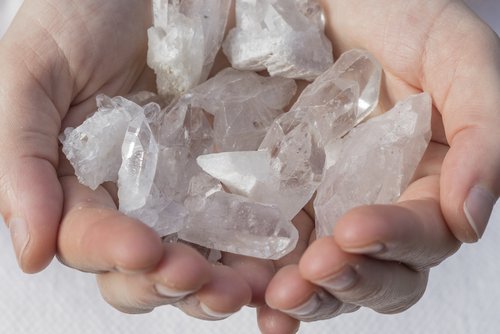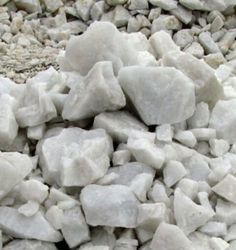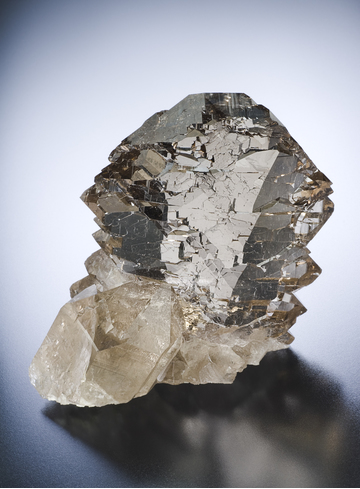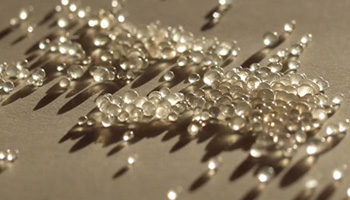Top 8 industrial uses for Quartz mineral
13, Sep 2022

Do you know which is the most popular & widely available mineral on earth? You’re right! The answer is Quartz. It is a fundamental component of many rocks including igneous, metamorphic, and sedimentary rocks.
It is usually found in abundant quantities in countries like Brazil, India, Japan, Russia, China, France, Bulgaria, South Africa, Germany and the United Kingdom. The majority of our quartz minerals are sourced from the regions of Rajasthan, Bihar and Andhra Pradesh in India
Quartz mineral has several properties and characteristics that make its application indispensable to several industries. It has a translucent shine and it interacts with light similar to glass. The degree of transparency of the quartz sample determines whether you can see any crystals. Quartz has a Moh's scale hardness of 7, making it a somewhat tough material (out 10 – with diamond being a 10).

It is tolerant of high temperatures and chemical attacks; hydrofluoric acid, for example, is required to dissolve quartz. In milder acids, many additional minerals will dissolve. Quartz, on the other hand, is extremely brittle but is somewhat resistant to mechanical stress since it does not show cleavage. It is formed in all climatic conditions.
This naturally occurring type of silicon dioxide (Si2O4) is present in a massive range of variations and colours. In its purest state, quartz crystallizes into a colourless, clear, extremely hard, and glass-like structure. Quartz occurs in virtually every colour. The most common colours are clear, white, grey, purple, yellow, brown, black, pink, green, and red.
Quartz is an extremely useful mineral across several industries. Here is a list of the top 8 industries that use quartz minerals in the majority.
1. Quartz for Glass Industry:
Quartz is an important mineral for the glass industry because glass is made using silica dioxide which is colourless quartz. This silicon dioxide is heated and then allowed to cool down into the desired shape or dimension (it must be 99.9% extraordinarily pure). Scientific instruments, lasers, telescopes, microscopes, and electronic sensors all require quartz crystals with optical properties.
The glass industry in India accounts for about half of all quartz usage. The production of containers, flat glass, plate glass, speciality glass, fibreglass, bottles, tableware, and other glassware in India typically uses quartz sand.

2. Quartz for Metal Casting:
For moulding and metal casting, quartz sand is frequently mixed with cohesive substances such as clay, resin sodium silicate, and oil. The properties of quartz sand such as high melting point, high strength, and refractoriness are helpful in the metal casting process. After metals are cut, cast, or drilled, rough edges are removed using microcrystalline quartz.
Quartz sand is also added to molten metals in the metal casting industry to remove impurities, primarily oxygen. The contaminants bond with the sand, which is then simply washed away. All these usages make quartz minerals popular in the metal casting industry.
3. Quartz as filler for rubber & paint Industry:
When making adhesives, putty, paint, and rubber, quartz sand and powder quartz are used as fillers. Quartz powder adds toughness & durability, chemical inertness & makes it resistant to wear. The particle size and surface area of the particles of the quartz sand impact the outcome.
Because of its acid resistance and hardness, quartz sand acts as a filler and extender in paint formulas, making the paint more chemically resistant. It also improves the scrubbing and wears resistance of surface layers. The use of quartz enhances the paint's flowability and longevity.
4. Quartz for Ceramic Industry:
To make ceramic tiles, the ceramics industry uses quartz sand. Sand contains silica, which aids in the production of ceramic bodies and gives ceramics their characteristic white hue.

5. Quartz for Refractory Industry:
Due to its extreme strength and heat resistance, quartz sand is used to make refractory bricks. After metals have been cast, chopped, or drilled, they can also be used as a flux to smelt out rough edges.
6. Quartz as Abrasives:
Quartz sand is regarded as a fantastic abrasive due to its hardness (it is harder than most natural minerals) and resistance to corrosion. Additionally, it is utilised as glass grinding media, scouring cleaners (powder), sanding and sawing grit, and sandblasting media.
7. Quartz for Petroleum Industry:
Quartz sand or silica sand is used to create a passage for the flow of natural gas from the bedrock formation into the oil well. This process is known as hydraulic fracturing. The silica sand injected into the fractures holds it in place easing the whole process.

8. Quartz for Electronic industry:
Quartz produces current on its surface when bent or squeezed and this makes it very useful in electronics. To provide an exact frequency for all radio transmitters, radio receivers, GPS transmitters, and computers, quartz crystals have been employed for many years. This precision is due to quartz crystal's resistance to most solvents and ability to maintain its crystal structure at temperatures up to hundreds of degrees Fahrenheit.
Quartz has certain physical, chemical, and electrical characteristics that make it a highly useful mineral in a variety of fields and industries. The selection of quartz minerals, its purity & grade will impact the end product considerably.
We at Aryan Tiles give importance to particle sizes & uniformity of quartz minerals and follow strict manufacturing procedures to offer the best mineral solutions. Connect with us to get a customized mineral solution for your industry and budget.
Wondering where to begin?


 Address:
H42C & H43F, RIICO Industrial Area, Chirawa, Rajasthan 333026
Address:
H42C & H43F, RIICO Industrial Area, Chirawa, Rajasthan 333026 +91 637 797 0211
+91 637 797 0211